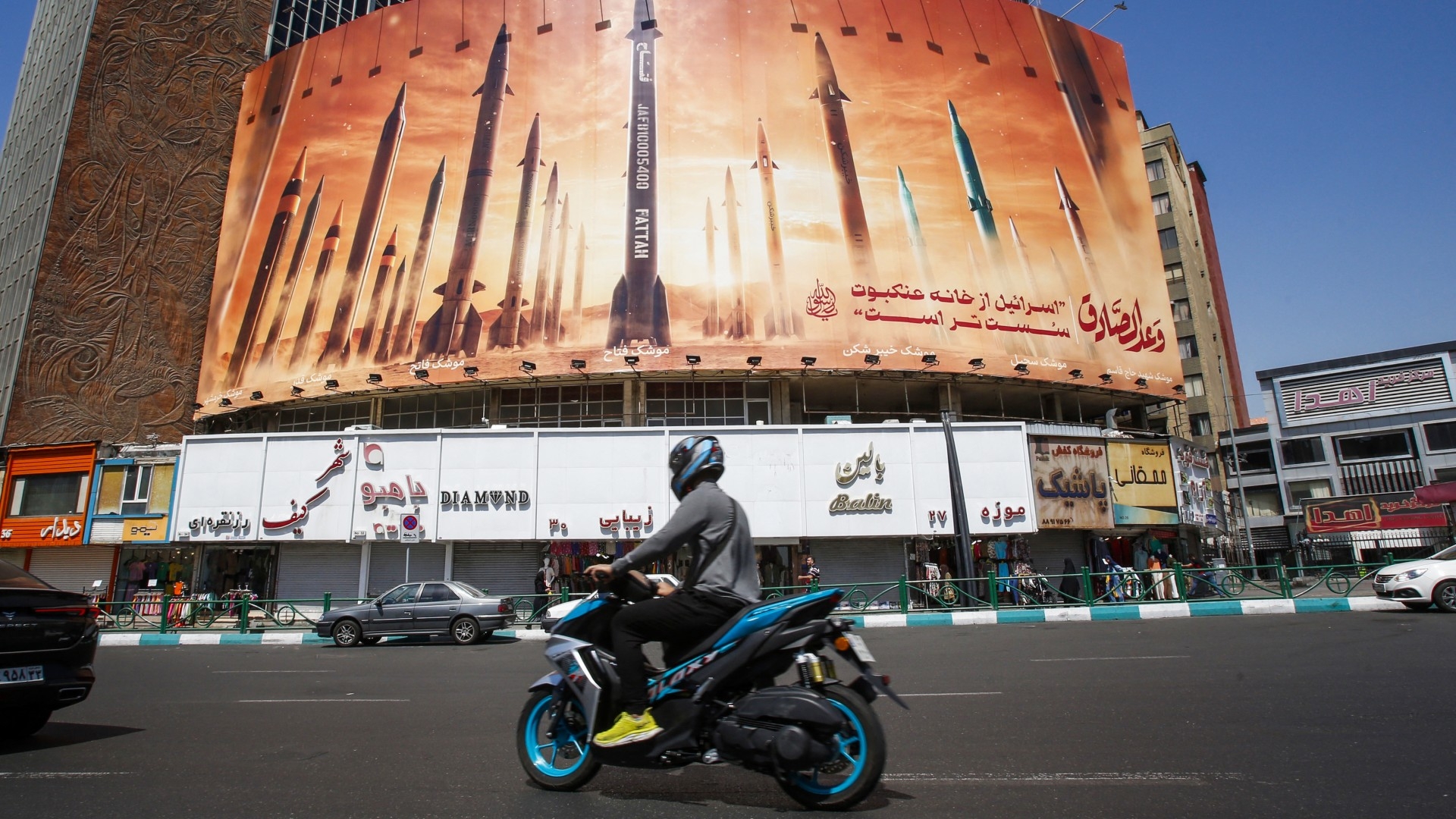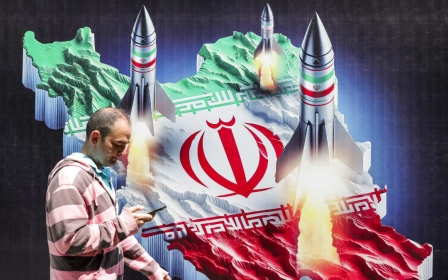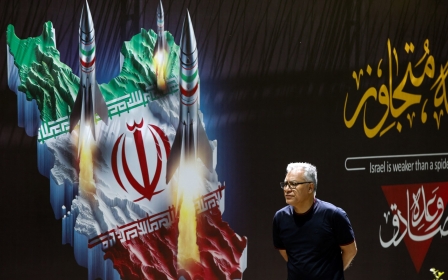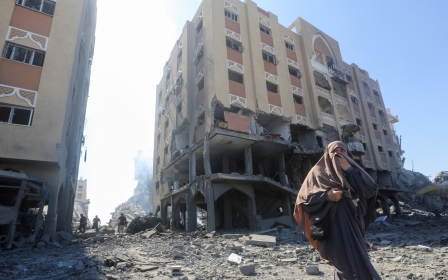Israel blindsided US, said it wouldn't attack Iran until after Passover holiday

Israel did not notify the US of its intention to carry out strikes in Iran on Thursday, and had previously told its closest ally that it would not strike the Islamic Republic until after the Passover holiday, a senior US official has told Middle East Eye.
The senior US official, who was speaking on condition of anonymity, said Israeli officials had assured their US counterparts that their response to Iran's highly choreographed attacks from over the weekend would not come until after the Passover holiday which starts on 22 April and ends on 30 April.
Israel's overnight attack on Iran appeared to be limited in scope, potentially designed to avoid further escalation.
Iranian state media said three drones were shot down over the city of Isfahan. Siavosh Mihandoust, a senior Iranian commander, told state TV there had been no damage caused by the attack. The International Atomic Energy Agency also said Iran’s nuclear sites were unharmed.
The strike came just hours after US Defence Secretary Lloyd Austin spoke with Israeli Defence Minister Yoav Gallant to discuss rising tensions in the Middle East.
Speaking to reporters on the Italian island of Capri, US Secretary of State Antony Blinken refused to answer questions about the attacks on Iran.
"I'm not going to speak to that [the attacks on Iran] except to say that the United States has not been involved in any offensive operations," he said.
"The United States, along with our partners, will continue to work for de-escalation," he added.
Earlier on Friday, Italy's Foreign Minister Antonio Tajani told reporters that the US was only informed by Israel of the attack at the "last minute".
"There was no sharing of the attack by the US. It was a mere information," he added.
MEE reached out to the White House for comment but did not receive a response by the time of publication. Attempts to contact Israel's embassy in Washington DC went unanswered.
By Friday afternoon, flights resumed at Iranian airports, and a Revolutionary Guard commander told Reuters that there was no immediate plan for retaliation.
Mihandoust was quoted by state TV as saying air defence systems had targeted a "suspicious object".
He said there had been no damage from the attack.
Meanwhile, an analyst told Iranian state TV that mini-drones had been flown by "infiltrators from inside Iran".
In Israel, authorities were officially quiet, although several politicians and former officials have spoken out about the strike.
National Security Minister Itamar Ben Gvir, a hardliner who had pushed for a forceful response to Iran's early Sunday attack, tweeted the single word: "Feeble!"
Since Israel declared war on Gaza following the 7 October attacks, the Biden administration has been trying to prevent Israel's deadly offensive from triggering a wider regional conflict.
But it has been caught between supporting its ally militarily and pushing back against Tehran. On Friday, the Wall Street Journal reported that the White House was considering a new billion-dollar arms transfer to Israel.
Over the weekend, the US led a coalition of France, the UK, and Jordan to intercept over 300 drones, ballistic missiles, and cruise missiles fired at Israel by Iran in retaliation for an attack on its embassy in Damascus, Syria.
Middle East Eye propose une couverture et une analyse indépendantes et incomparables du Moyen-Orient, de l’Afrique du Nord et d’autres régions du monde. Pour en savoir plus sur la reprise de ce contenu et les frais qui s’appliquent, veuillez remplir ce formulaire [en anglais]. Pour en savoir plus sur MEE, cliquez ici [en anglais].





